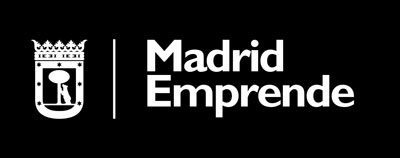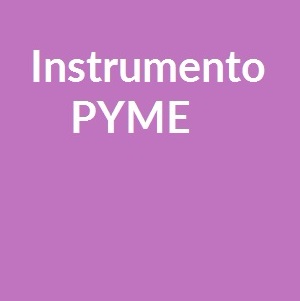SME Instrument is part of the European Council for Innovation –pilot- (EIC for its acronym in English) and was launched in October 2017 as part of the Horizon 2020 European Program (H2020), for the period 2018-2020 and framed in its second pillar of action, promotion of Industry Leadership.
In this way, Horizon 2020 finances high-potential innovations developed by SMEs from the SME Instrument.
With some €1.6 billion financing during the period 2018-2020, the SME Instrument supports innovative ideas for products, services or processes that are ready to conquer global markets. This instrument is available only for SMEs and this new scheme offers gradual, progressive and complementary support for the development of ready-to-use ideas. Unlike the projects within the H2020 Program, there are no predefined themes for the SME Instrument call, as only the most excellent ideas with the greatest impact will receive support.
WHO IS ADDRESSED?
It is the instrument of H2020 dedicated to SMEs and oriented to all types of innovative SMEs that show a strong ambition to develop, grow and internationalize.
Likewise, this instrument will apply to all types of innovation, including non-technological and service innovations.
WHAT DOES IT OFFER?
The SME Instrument supports activities close to the market, with the aim of giving a strong boost to groundbreaking innovation with market-creating potential. Highly innovative SMEs with a clear business ambition and high growth and internationalization potential are the main target.
The SME Instrument offers:
- Business innovation grants for feasibility assessment purposes (Phase I):000 euros (lump sum) per project (70% of the total cost of the project)
- Aid for business innovation for the development and demonstration of innovation (Phase II): an amount in the indicative range of EUR 500,000 and 2.5 million (70% of the total cost of the project as a general rule)
- Free business coaching to support and enhance the company's ability to innovate and help align the project with strategic business needs
- Access to a wide range of other business acceleration services and facilitated access to risk financing, to facilitate the commercial exploitation of the innovation.
PHASES OF THE SME INSTRUMENT
Phase 1: feasibility assessment (optional)
Available financing: To explore and assess the technical feasibility and commercial potential of a groundbreaking innovation that a company wants to exploit and commercialize.
The financed activities They could be: risk assessment, design or market research, exploration of intellectual property; activities whose ultimate goal is to bring a new product, service, or process to market, possibly through an innovative application of existing technologies, methodologies, or business processes.
The project must be aligned with the business strategy, helping internal growth or targeting a transnational business opportunity.
The evaluation of phase 1 proposals is done remotely by a panel of independent experts.
Financing amount: Lump sum of €50,000 (per project, not per participating business).
Duration: 6 months
Result: The result of a Phase 1 project is a feasibility study (technical and commercial), including a business plan.
If the conclusion of the study is that the innovative concept has the potential to be developed to the level of investment readiness / market maturity, but requires additional funding in view of commercialization, the SME can apply for Phase 2 support.
Phase 2: innovation project
Financing available for: innovation projects supported by a strong and strategic business plan (potentially developed and partially financed through the
Phase 1 of the SME Instrument).
The financed activities in Phase 2 they can be of various types: prototyping, miniaturization, scale-up, design, performance verification, testing, demonstration, development of pilot lines, validation for market replication, including other activities aimed at bringing innovation to market. readiness for investment and maturity for market acceptance.
The evaluation of Phase 2 proposals is conducted remotely and face-to-face (via interview) by two independent expert panels.
Financing amount: In the indicative range of €500,000 to €2.5 million or more (covering up to 70% of eligible costs).
Duration: From 1 to 2 years
Results:
- A very innovative product, process or service that is ready to conquer the market
- A business innovation plan incorporating a detailed go-to-market strategy and financing plan for market launch
Phase 3: business acceleration
With the aim of facilitating the commercial exploitation of the innovation activities resulting from Phase 1 or Phase 2, the SME Instrument proposes business acceleration services. These include support to further develop the investment, linking up with private investors and clients through matchmaking activities and events (including trade fairs), assistance in applying for additional EU venture funding, and a range of other support activities and services. to innovation offered through the Enterprise Europe Network (EEN).
coaching
- Improve the innovation capacity of the company
- Align the project with the identified business development strategy
- Develop business/economic impact and long-term sustainability
- Get access to tracking finances
AID FOR THE PREPARATION OF COMMUNITY PROPOSALS (APC)
The CDTI (Centre for Industrial Technological Development) offers a series of grants to promote the participation of Spanish companies in Research and Innovation Actions, Innovation Actions and Phase II SME Instrument actions, financed by the H2020 Program and co-managed by the CDTI.
In this sense, the CDTI finances the preparation and presentation of proposals, assessing the lump-sum aid based on the project budget, the company's participation in it and the role played.
These grants consist of fixed interest rate loans (one-year Euribor, established at the time of approval of the aid) between 12,000 and 50,000 euros. The CDTI will not require reimbursement of the aid when the proposal does not obtain funding, as long as the proposal is eligible and reaches the 100% of the evaluation threshold established for each call.
In order to apply for aid, it is necessary to complete a online form, which includes a brief summary of the project, as well as the role played by each of the partners and their experience and background in R&D projects.
These grants are governed by the regulation of minimis of the European Union and are incompatible with any received by the company for the presentation of the same proposal.
How to make your request?
How to make your request? Through the CDTI website, in the section: REQUEST YOUR HELP FOR R&D&I. Online project management

